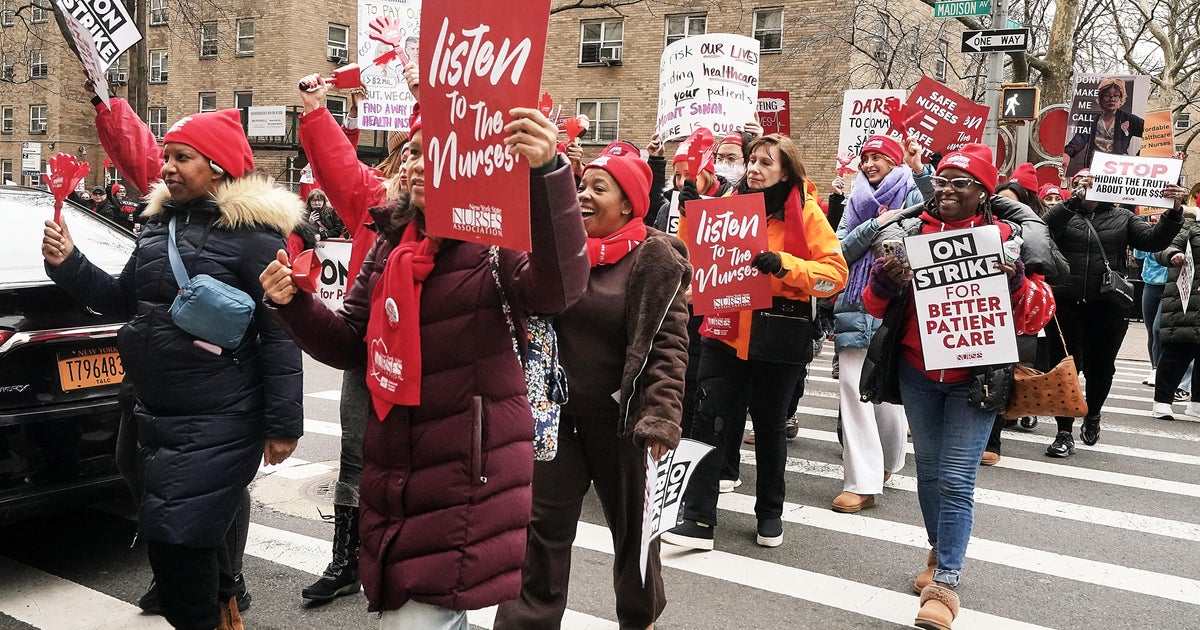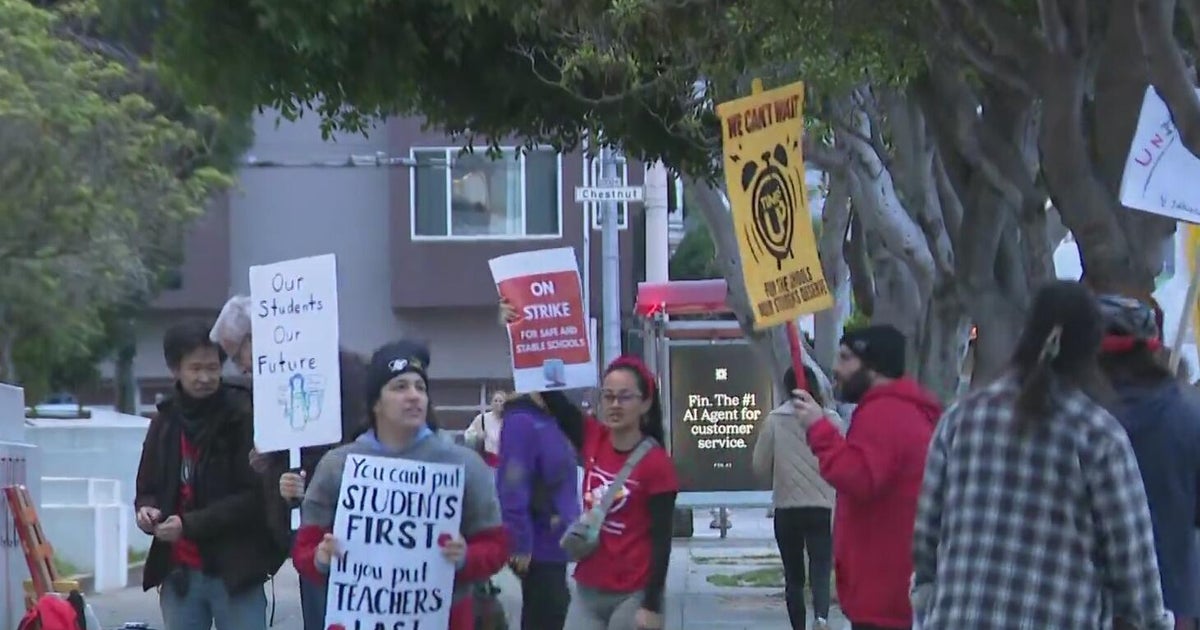Kaiser Permanente workers end historic strike, but another may loom
More than 75,000 Kaiser Permanente workers are back at work without a contract agreement after staging the largest walkout by health care workers in U.S. history.
The three-day walkout at Kaiser hospitals and medical offices in five states and Washington, D.C., concluded during the weekend, according to the Coalition of Kaiser Permanente Unions. The work stoppage by nurses, lab technicians, pharmacists and others began early Wednesday in California, Colorado, Oregon, Virginia, Washington and the nation's capital.
"As frontline healthcare workers conclude the current strike action on Saturday morning, our resolve to advocate for the safe staffing that our patients need has never been stronger," Georgette Bradford, an ultrasound tech and bargaining team member in Sacramento, California, said in an emailed statement.
Workers claim chronic understaffing bolsters Kaiser's bottom line but hurts patient care and staff morale, while the managed care giant argues it faces an industrywide shortage of workers.
Oakland-based Kaiser and the coalition of unions representing the workers said they would resume negotiations next week, with the next bargaining session now scheduled for October 12.
The coalition may issue another 10-day notice of its intent to strike after Saturday, with further walkouts possible in coming weeks, it said, citing staffing levels and outsourcing as among the points of contention.
Kaiser "needs to retain and attract qualified health care professionals. Outsourcing and subcontracting would have the opposite effect," Kathleen Coleman, medical assistant message management, Arapahoe Primary Care in Colorado, said in a statement distributed by the coalition.
How raising wages could help Kaiser
A wage proposal by Kaiser earlier in the week offered an hourly floor of $21 to $23, depending on location, beginning next year and to be increased by one dollar in 2025 and 2026. Unions in the summer had called for a $25 an hour minimum across Kaiser facilities.
"We look forward to reaching a new agreement that continues to provide our employees with market-leading wages and benefits, and ensures our high-quality care is affordable and available to meet our members' needs," a spokesperson for Kaiser said Friday in an email.
Kaiser may be paying market-leading rates, but if it's unable to fill positions then the company needs to increase pay and enhance conditions to bring workers back or entice others to apply, according to Gabriel Winant, an assistant professor of U.S. history at the University of Chicago.
"It's not just compete with the hospital down the street, but pulling people back into the labor pool, or pulling people from across the ocean. It's a higher bar, but that is what it is going to take to stabilize and improve working conditions in hospitals," he said.
Employees who spoke to CBS MoneyWatch described being severely overworked and not having enough backup to properly care for patients.
"You don't have the ability to care for patients in the manner they deserve," Michael Ramey, 57, who works at a Kaiser clinic in San Diego and is president of his local union, said in the run-up to the strike. "We are willing to do whatever it takes to ensure we have a contract in place that allows us to be staffed at the levels where we need to be," said the ultrasound technician, at Kaiser for 27 years.
The strike coincided with increased momentum for organized labor, which is enjoying growing public support as autoworkers and others walk off the job seeking better pay and work conditions.



